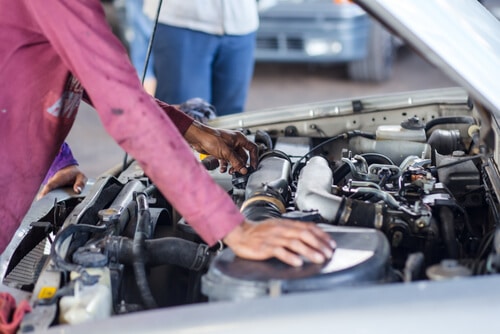Your car is a significant investment, and you want it to last as long as possible. That’s where preventative maintenance steps come in. By taking a few simple steps, you can extend your vehicle’s lifespan and save yourself money in the long run.
Here are some strategies for preventative maintenance for your car:
- Regular oil changes – Changing the oil in your car is essential to keep it running smoothly. A general rule of thumb is to change the oil every 5,000 to 7,500 miles. If you’re unsure of when to change the oil, consult your vehicle’s owner’s manual or ask a mechanic.
- Keep an eye on your tires – Proper tire maintenance is crucial for safety and longevity. Check your tires’ pressure regularly and make sure they’re inflated to the manufacturer’s recommended level. Inspect your tires for any signs of wear, such as cracks, bulges or punctures, and replace them as necessary.

- Use the right fuel and fluids – Follow the manufacturer’s recommendations for the right fuel and fluids for your vehicle. Using the wrong type of fuel or fluids can cause damage to the engine, transmission, or other systems in your car.
- Check your brakes regularly – Your brakes are critical to safe driving. Regularly check your brake pads and rotors for wear and replace them if necessary. If you notice any unusual sounds or vibrations when you apply the brakes, have them checked by a professional.
- Keep your car clean – Regular cleaning helps to prevent rust and other types of damage to your car’s exterior. Wash your car regularly and apply a good quality wax to protect the paint.
- Regular tune-ups – Regular tune-ups involve servicing various parts of your car to ensure that they’re working optimally. This may include checking and replacing spark plugs, changing filters, and adjusting the timing.

- Stick to scheduled maintenance – Your car’s owner’s manual will provide a maintenance schedule that specifies when specific parts should be inspected or replaced. Following this schedule can help prevent breakdowns and extend the life of your car.
Preventative maintenance is essential to keep your car running smoothly and to extend its lifespan. By following these strategies, you can ensure that your vehicle stays in excellent condition, saving you money on costly repairs and replacements in the long run. A well-maintained vehicle also retains its value better when it’s time to sell, ensuring you get the most money for your investment.

